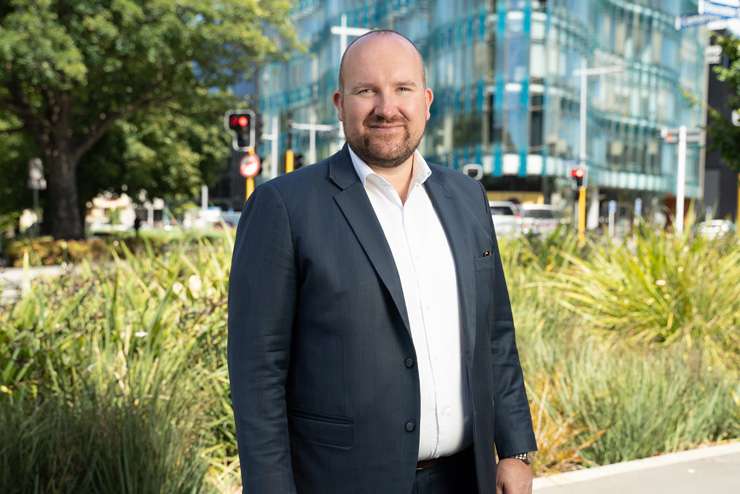The growing number of free property seminars and webinars offering tips on how to make money on the housing market can provide helpful advice, but would-be investors should also be aware of the provider’s motives.
While each companies’ approach differs, often they give an introductory talk on getting into property investment free of charge but may try and get attendees to sign up to their services or want to sell an investment property from a developer they work with. They may also want to manage any investment property purchased for an additional fee.
Property investment firm Opes Partners economist Ed McKnight reckons he’s been to every property investment seminar there is and says they can be good for first-timers wanting fundamental advice.
In McKnight’s experience, most investor seminars on offer in New Zealand are free or relatively inexpensive to attend, with a $25 to $30 fee to cover refreshments, but some have been known to charge several thousand dollars for what can be an entire weekend of property education.
Start your property search
McKnight recommends that Kiwis interested in attending a property investment seminar do their due diligence and look at what other content the organiser has published.
There are several reasons a company would offer seminars for free, he explains. “Doing so provides them an opportunity to a) share their insights and b) build some credibility.
The hope would be that attendees use their services, whether it be property management, mortgage brokering or property coaching.”
He says most “property 101-type” seminars cover the same general information, although each company or host “has their own take”.
“If you are new to property investment, I would recommend going to a couple. Let the information sink in and figure out which company you think is credible.”
Since the first Covid lockdown two years ago, Opes Partners has moved away from hosting seminars around the country and now produces monthly webinars, which, McKnight says, are cheaper to produce and enable the company to reach more people and focus on specific topics.
McKnight says Opes Partners doesn’t charge clients - some who might work with them as a result of listening to its talks - when it comes up with an investment plan and recommends suitable properties, but is upfront about receiving commission when it sells properties from one of the 58 developers it works with. It does charge for other services such as renovation coaching and property management from its sister company Venture Management.

Opes Partners economist Ed McKnight: "Let the information sink in and figure out which company you think is credible.” Photo / Supplied
“I can’t speak for other property investment company because I don’t know how each one individually operates, but it would not surprise me if there were some that were less transparent about how it all works before an investor decides ‘yes’, they are going to progress with a certain company.”
One of New Zealand most high-profile property coaching companies, Propellor Property Investments, is currently in the headlines, after it was reported that the Commissioner of Inland Revenue had last month applied to put the firm into liquidation.
Propellor is run by Nikki Connors, New Zealand's self-titled "queen of property", and according to its website co-ordinates the "entire process" for clients, working with its sister company Metropolis Real Estate to find properties and arranging financial advice and due diligence reports.
The firm runs seminars where it promises to guide people through its “proven three-step process” to “secure their future”, noting on its website it "receives a fee for setting up purchases".
OneRoof approached Connors for comment on the value of property seminars and on the IRD’s liquidation application but she did not respond. Last week, she told Stuff.co.nz that the IRD application was “heavy-handed”.
"We are in negotiations, and I have done this before. We have come to arrangement, and we’re fine,” she said.

Propellor Property Investments founder Nikki Connors, pictured in 2008. Photo / Supplied
“It’s just the typical thing where they take a heavy-handed approach, and we say we don’t owe this – and that’s what it is basically.”
OneRoof understands Propellor is still hosting seminars promising expert advice on investing in the housing market and held a seminar in Christchurch on the same day the news of the IRD application broke.
It also has seminars planned this week in central Auckland and South Auckland as part of a nationwide tour.
Property Apprentice owner Debbie Roberts, who is a qualified financial adviser, says her company does not sell property instead focussing on providing property investment advice. For less than $10,000 plus GST a person was given access to a lifetime of coaching, which she describes as being on the cheaper-end of the scale.
Most of the companies running free seminars are also selling property and a good seminar is informative rather than a “big, fat sales pitch”, she says.
“I would always suggest people Google who they are considering joining because there are a lot of them out there at the moment who have previously gone broke, or they liquidated a company and started a company other a different brand.”
She also suggests people think twice about using companies offering a “one-stop shop” with their own mortgage advisers and accountants. “It’s like back in the days of blue chip. So, if it’s all in-house, one-stop shop, all owned by the same entity but just different branches, sister companies and stuff like that then they are making on hell of a lot of money off you.”

EasyStreet Mortgages mortgage adviser Gareth Veale says firms are more focused on the commission. Photo / Supplied
EasyStreet Mortgages mortgage adviser Gareth Veale says while some property coaches are a front for property developers, others can add value and create true wealth for people who would otherwise not invest because they are too scared or risk adverse.
“Some are very good at coaching and helping people on their journey, but some are more focused on the commission that is kicked back to them indirectly – not paid by the client.”
It is also important to know how many developers the company worked with because one that does not have a lot of relationships with different developers would not give the investor much choice.
He encourages people to crunch their own numbers, learn about true yield and get several rental appraisals rather than taking all the advice on face value.
“People can do well out of these and something is better than nothing in most cases, but there are often better deals out there so people have to go into these things with open eyes and be aware of the spin and the glossy lights.”
Property expert Sharon Cullwick, who manages her own investment property portfolio, says there are other options outside of seminars available to investors. Mortgage advisers, accountants and property investor associations are often good sources of advice, she says, although she adds: “Morgage brokers won’t charge you whereas an accountant does.”
Cullwick, who is president of the Hawke’s Bay Property Investors Association, says the annual membership fee for a property association was around several hundred dollars whereas some of the property coaches can charge around $30,000 to $40,000.

Valocity head of valuations James Wilson: "Buy low and sell high - that’s something most people know.” Photo / Fiona Goodall
She says local property investors federations hold monthly meetings and are a good place to talk to other property investors about their strategies. “Everyone has a different strategy which is perfect because all of us don’t want to be buying the same thing. Some people they are looking at newer properties, some people are looking at older properties. Some are the two-bedrooms, some want the five-bedrooms.”
They also have no ulterior motive. “We are not for profit so we don’t push on any sort of houses to anyone, they can do whatever they like,” she says.
For those who don’t wish to use the services of a coach or property investment firm, her advice is to check what the costs, including management expenses, are.
“If you are going to buy something through a mentoring property company as such – just make sure that you can get out of it.”
Nick Kearney, a property lawyer at Davenports Law, says several of his clients who used property coaches ditched them after a couple of years because they felt they knew enough to do it on their own. “They were charged $15,000 a year or $20,000 a year to be coached and for these people it came off their bottom line.”
He says the more people can learn around property investment the better, but they should also surround themselves with trusted advisers, including an accountant, lawyer, mortgage broker and possibly a real estate agent.
“There is no golden egg at the end of it. It still comes with a lot of hard work and a lot of graft goes into it to make a decent living from it,” he says.
James Wilson, head of valuations at OneRoof’s data partner, Valocity, believes the reason there are a large number of courses now available is because there a lot more smaller investors in the market – often ma and pa investors – who want to learn more.
“Often the narrative is buy low and sell high and that’s something most people know,” he says.
“It’s easy to be pessimistic about the courses. Some of them offer some really great courses and you do get some really great tips and tricks from them. It’s definitely not personalised financial advice, but you are getting something to be aware of if you are looking to dive into the market.”

















































































